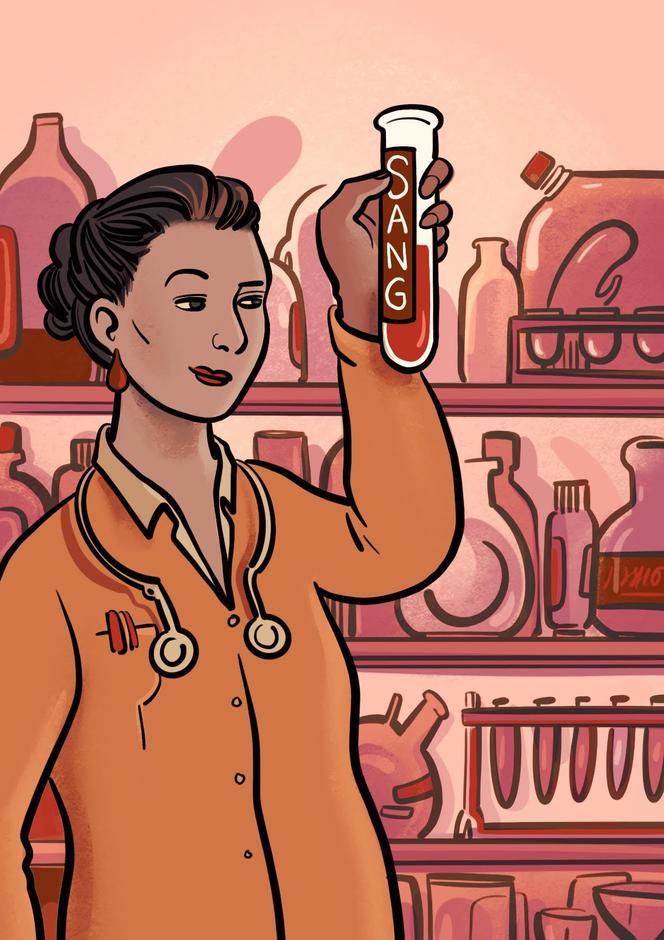


Let's face it: Sex is about an activity (and an organ) that gets wet. This summer and fall, sex columnist Maïa Mazaurette is donning her scuba suit to help us uncover these fluids. This week, we see red and bathe in the blood of erections, menstruation and the hymen.
- Etymology: From the Latin sanguis, blood is associated with everything that makes life possible – from conception to death via the delights of eroticism. It's perfectly logical, then, that our language uses similar expressions to describe our "hot-blooded" lovers, whose desire "burns the blood," and "cold-blooded" psychopaths, whose desire "freezes the blood".
- Erection: As everyone learned in science class, an erection is due to an influx of blood to the blood vessels. But what we didn't all learn in science class, this engorgement also affects women's bodies – the clitoris, vagina and vulva also swell with blood under the effect of desire. From the modest blushing of the cheeks to the turgidity of the genitals, the message is clear: Where there's sex, there's blood. But depending on whether you're a man or a woman, the symbolism is diametrically opposed.
- For men: Blood symbolizes virility. There's that which is shed (warrior's blood) and that which flows through the body (as a marker of vigor, especially in the penis). So far, so simple: I have a hard-on, therefore I am (a real male). And yet, new divisions have recently emerged in the locker room realm, fracturing the international masculine standard of triumphant erections. It's time to choose sides: Do you have a tissue-based penis or a blood-based penis? The former is big when flaccid (and doesn't get much bigger when aroused), while the latter doesn't look like much, but can double in size during an erection. To hear men tell it, the vast majority have elastic – or blood-based – penises! It would explain the proverbial extent of their complexes... at least when flaccid.
- For women: The blood linked to arousal is completely hidden, and replaced by two traumatic phenomena: menstruation and the loss of virginity. In both cases, the blood represents a taboo.
Let's start with menstruation. For a long time, it was linked to sexual prohibitions, the legacy of which we still carry around with us today. While fear of sin has been replaced by fear of ruining one's sheets, or by a form of disgust, the result is the same. Nothing prevents intercourse during menstruation (on the contrary, pleasure can relieve the pain) – and yet! In practice, this period often resembles mutual abstinence, something that neither the use of condoms nor the existence of absorbent pads seems able to shake off.
You have 64.89% of this article left to read. The rest is for subscribers only.
